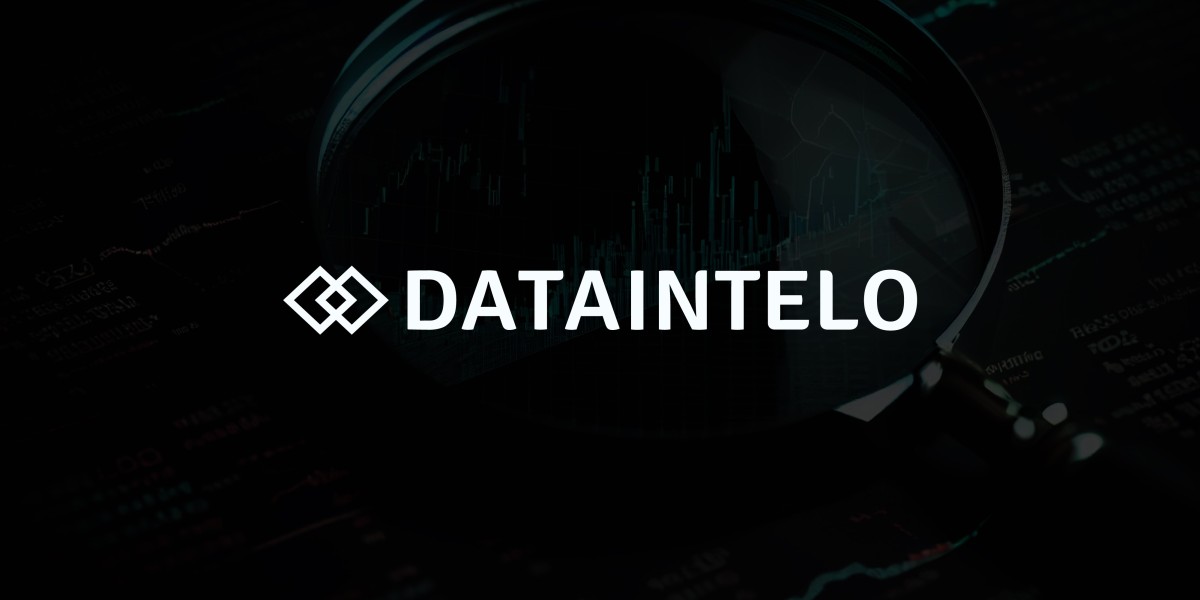The Adult Education Market is witnessing a robust transformation, driven by a global emphasis on lifelong learning, reskilling, and digital literacy. As technology reshapes the workforce and older generations seek continued education, this market is becoming a critical pillar of modern knowledge economies.
Growing participation from working professionals, retirees, and non-traditional students is fueling demand for flexible learning options. Online platforms, hybrid models, and skill-focused programs are rapidly redefining the adult education landscape.
With a focus on accessibility and upskilling, the global adult education industry is unlocking new potential across developed and developing regions alike.
Request a Sample Report for Detailed Market Forecasts:
https://dataintelo.com/request-sample/150214
Key Market Drivers: Fueling the Rise of Continuing Education
The expansion of the Adult Education Market is being powered by several compelling factors:
Workforce Upskilling and Reskilling: Evolving job markets demand continuous learning to stay competitive in the digital economy.
Government and Institutional Support: Education ministries and policy makers are incentivizing adult learning through funding, tax credits, and grants.
Online and Hybrid Learning Models: Digital platforms have broken traditional barriers, allowing adults to learn at their own pace and schedule.
These drivers are making adult education more mainstream and mission-critical across global regions.
Restraints: Addressing Access and Perception Gaps
Despite its momentum, the market faces notable challenges:
Digital Divide: Lack of internet access or digital tools in rural or low-income areas hinders enrollment in online courses.
Time and Financial Constraints: Many adults juggle work, family, and education, making time and cost critical obstacles.
Perceived ROI: Some learners question the value of adult education relative to its investment, particularly in saturated job markets.
Addressing these issues will be key to unlocking participation among broader demographics.
Opportunities: Personalization, Partnerships, and New Markets
The Adult Education Market offers rich opportunities in several areas:
Microlearning and Modular Courses: Bite-sized learning modules cater to busy schedules and specific skill needs.
Corporate-Education Collaborations: Businesses are increasingly partnering with education providers to build customized training pipelines.
Emerging Markets Expansion: As internet infrastructure improves, countries across Asia, Africa, and Latin America present untapped potential for growth.
Stakeholders that innovate around flexibility, affordability, and access will capture significant market share.
View Full Report for Comprehensive Market Segmentation:
https://dataintelo.com/report/global-adult-education-market
Market Size and Growth Outlook
According to Dataintelo, the global Adult Education Market was valued at USD XX billion in 2023, with forecasts projecting a compound annual growth rate (CAGR) of XX% from 2024 to 2032. This growth reflects surging interest in upskilling, digital transformation, and flexible learning methods.
The market encompasses a wide variety of learning formats, including formal degree programs, vocational certifications, language training, and personal development courses. With shifting demographics and technological advancement, this diversity is expected to increase.
Trends Reshaping the Adult Learning Experience
Several key trends are redefining how adults engage with education:
AI-Powered Learning Tools: Adaptive learning systems personalize content based on learner progress and preferences.
Credentialing and Certification: Digital badges and short-form certifications are gaining legitimacy in hiring processes.
Lifelong Learning Culture: Education is no longer limited to youth; ongoing intellectual development is seen as vital to personal and professional growth.
These trends are helping to make education more relevant, engaging, and accessible for learners of all ages.
Regional Insights: A Global Perspective
Market performance varies across different geographic regions:
North America is a mature market, with strong demand for professional development, particularly in tech, healthcare, and finance.
Europe sees broad participation through government-subsidized adult learning initiatives and multilingual programs.
Asia-Pacific is emerging as a growth leader, with rising internet penetration and a booming middle class eager to upskill.
Latin America and Africa show promising long-term growth, supported by international development aid and mobile learning innovations.
Each region is adapting adult education to its unique cultural, economic, and technological context.
Check Out the Report for Region-Specific Insights:
https://dataintelo.com/checkout/150214
Segmentation: Understanding the Market Landscape
The Adult Education Market is segmented by type, learning mode, end user, and subject area:
By Type: Degree programs, non-degree courses, certification programs, and vocational training.
By Learning Mode: Online, offline (classroom-based), and blended formats.
By End User: Individual learners, corporates, and educational institutions.
By Subject Area: Business, technology, arts, healthcare, language, and personal development.
This segmentation allows market players to tailor offerings and optimize delivery strategies.
Value Proposition for Learners and Institutions
Adult education serves multiple functions across society:
Career Advancement: Learners gain relevant skills to qualify for promotions or pivot to new industries.
Personal Enrichment: Courses in art, languages, and wellness promote holistic development.
Economic Mobility: Education opens doors for underserved populations seeking better job prospects.
Institutions benefit from increased enrollment, brand credibility, and diversified revenue streams by catering to adult learners.
Technology Integration in Adult Education
Modern adult education is increasingly powered by advanced technologies:
Learning Management Systems (LMS): These platforms streamline course delivery, assessment, and student engagement.
Virtual Reality and Simulations: Used for vocational and technical training, enhancing practical learning outcomes.
Analytics and Feedback Tools: Real-time performance tracking supports personalized improvement plans.
These innovations improve completion rates, engagement, and long-term learner satisfaction.
Explore the Future of Learning in the Full Dataintelo Report:
https://dataintelo.com/report/global-adult-education-market
Conclusion: Building a Smarter, More Adaptable Workforce
The Adult Education Market stands at the crossroads of education, technology, and workforce development. As individuals and organizations confront an ever-changing global landscape, the importance of continued learning has never been clearer.
Stakeholders—from educational institutions to policymakers and private providers—must embrace flexibility, innovation, and equity to keep pace with demand. By focusing on learner needs and market shifts, they can contribute meaningfully to global human capital development.








